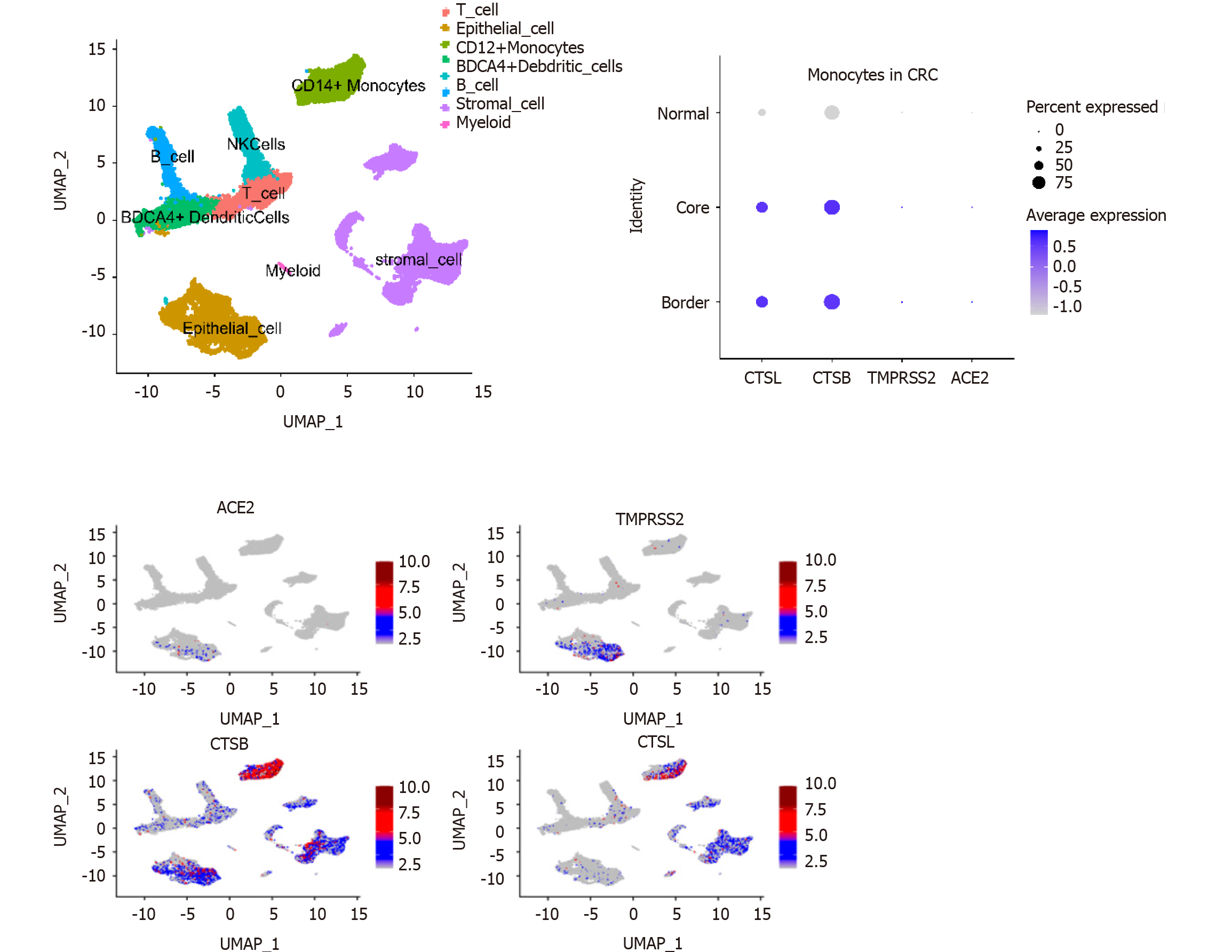Copyright
©The Author(s) 2021.
World J Clin Cases. Dec 6, 2021; 9(34): 10392-10399
Published online Dec 6, 2021. doi: 10.12998/wjcc.v9.i34.10392
Published online Dec 6, 2021. doi: 10.12998/wjcc.v9.i34.10392
Figure 2 Infiltrating monocytes in colorectal cancer tissues express high levels of severe acute respiratory syndrome coronavirus 2 recognition proteins.
Analysis of single-cell sequencing of 27,414 cells in six colorectal cancer patients identified genes that were expressed in at least three cells and at least 200 genes were identified in each cell. Harmony was used to remove batch effects. The first 20 principal components were selected in Seurat to cluster the patients, and the enriched pathways in marker gene sets were found with enrichR (https://amp.pharm.mssm.edu/Enrichr/) and the expression of coronavirus disease 2019-related genes in dendritic, natural killer, myeloid, stromal, and epithelial cells; monocytes, and B cells was screened. Severe acute respiratory syndrome coronavirus 2 recognition proteins were mainly expressed on monocytes. The expression of angiotensin I converting enzyme 2, transmembrane serine protease 2, cathepsin B, and cathepsin L in tissue-infiltrated monocytes was higher in colorectal cancer than in normal tissue. ACE2: Angiotensin I converting enzyme 2; CRC: Colorectal cancer; CTSB: Cathepsin B; CTCL: Cathepsin L; TMPRSS2: Transmembrane serine protease; UMAP: Uniform manifold approximation and projection.
- Citation: Bai L, Yang W, Qian L, Cui JW. Regulating monocyte infiltration and differentiation: Providing new therapies for colorectal cancer patients with COVID-19. World J Clin Cases 2021; 9(34): 10392-10399
- URL: https://www.wjgnet.com/2307-8960/full/v9/i34/10392.htm
- DOI: https://dx.doi.org/10.12998/wjcc.v9.i34.10392









